The pastime of game viewing is a curious exercise. The seasons and current conditions play a crucial factor in determining where to go. We had been in Zimbabwe less than 24 hours when we exited the country to neighbouring Botswana for a day trip to Chobe National Park that extends from the border to the center of that country. Had we known of this the previous day, we could have saved outselves a fistful of dollars by opting for a double entry Zimbabwean visa. Despite the presence of excellent game parks in Zimbabwe, the recommendation to go to Chobe was made by the experts based on two reasons. First, Hwange National Park in Zimbabwe is further away compared to Chobe which is just 80 km away at the border. Second, Chobe was expected to have more animals than Hwange during this time of the year. Something to do with rainfall, water holes and migratory patterns. We'll stop with that.
We managed to get to the border early after an hour's drive on a pleasant road that was made even more pleasant by the presence of the dazzling Carmine Bee-eater that seems to have taken over the entire stretch of powerline on this route. The ubiquitous Lilac Breasted Roller (LBR for short) evaded our cameras and we were eager to get a good shot of this long-time favorite of ours (going back to the early 90s when we spent a few months in South Africa) before this trip was done. The border point is one of the world's great meeting of nations. Within a span of a kilometer one can come into contact with Zambia, Zimbabwe, Botswana and Namibia (assuming that one is a Bee-eater or a Roller which are not stopped by officials, but then those creatures could care less about human borders, right?). It is not quite a four-cornered border with Botswana playing spoil-sport by separating Namibia and Zimbabwe by the matter of a few thousand feet. The Zimbabwe-Botswana border is a land crossing. The Zimbabwe-Zambia border is of course the Zambezi river. The same river separates Zambia and Namibia as it proceeds westward.
Just as it is with the rest of the world, these borders were the work of colonialists who are long gone but the current nations still live out the old conflicts. For example, you may have wondered the odd pandhandle shape of Namibia's Caprivi Strip that stretches east for several hundred kilometers. It is easy to guess why. The German occupiers of the erstwhile Deutsche SWA (today's Namibia) wanted access to the Zambezi river and struck a deal with the Rhodesians (Zambia and Zimbabwe were both Rhodesias in the old days) to acquire the Caprivi strip in exchange for some land in the North Sea and Zanzibar.
As we completed the border control formalities in both countries (we asked the Zimbabwe official if we could retrogressively upgrade our single-entry visa to a double-entry visa for the incremental delta, of course he did not bite), our Zimbabwean guide handed us over to his counterpart on the Botswana side promising to return in the evening to pick us up and take us back to Victoria Falls. We were surprised to see that the tour party consisted of only the two of us (at least for now). The border crossing was a breeze with barely a handful of people at both ends.
Everything on the Botswana side seemed to be named Chobe. The park, the river, the district etc. The Chobe and Zambezi rivers form a confluence at Kazungula which is the place where the four nations meet. The Chobe river also forms the boundary between Botswana and Namibia (Caprivi strip). As our guide, Gaba, helped us board the motorboat on the Chobe River, we were entertained by Wire Tailed Swallows which kept company with us throughout the morning. The plan for the morning was to cruise the river looking for animals and birds. We were happy to learn from Gaba that the LBR was Botswana's national bird.
As we got within touching distance of Namibia, Gaba explained to us that the tours were allowed to use the whole river with no restrictions. He also told us of a dispute between the two countries over a small island in the middle of the river. The historical documents by the colonials were not good enough to settle the dispute. The International Court of Justice chose to address the problem by verifying the channels on both sides of the island to determine which one was the main channel. Their finding clearly placed the main channel north of the river thereby granting the island (Sidudu) to Botswana.
We had barely settled down in our seats when we spotted a pair of old elephants enter the river for a luxury bath and swim to the other side. They were followed by a whole army that just oozed out of the Botswana jungle. After this jump start, we were bombarded with kingfishers (the majestic Woodland, the elegant Pied and the resplendent Malachite varieties), Yellow billed Kites, African jacanas, herons (Green-backed, Black, Squacco and Black-crowned Night varieties), Africa Fish Eagle (familiar to anyone who has handled Zambian currency), Open-billed storks, Blacksmith Plovers (now called Lapwings), Egyptian Geese, Spoonbills, Sacred and Glossy Ibises, Marabu Storks, African Darters, Southern Red Bishops, Coucals, and the dazzling Bee-eaters. If all this was not enough, we had monitors, crocodiles, lechwes, buffalo and of course, plenty of hippos. And more elephants. And even more elephants. The sight of a dead hippo being devoured by a group of crocodiles was horrifyingly fascinating. On closer inspection we saw that a crocodile had entered the body of the hippo to feast on its innards, an easier prospect than trying gnaw at its thick hide. Gaba guessed that the hippo was probably mortally wounded in a battle with another male hippo and the crocodiles were unlikely to have caused its demise.
We managed to put this gruesome sight of our minds to enjoy a buffet lunch at the Chobe Safari Lodge before hopping onto a Safari land vehicle for viewing game on land adjacent to the river. More elephants, giraffes, buffalo, sable antelope, impalas, kudus. Despite getting a fair share of elephants and giraffes, every encounter with these animals set the nerves tingling especially when we were surprised by one as we turned a corner.
The return border formalities were as painless as the morning's and we returned back to Victoria Falls happy and satisfied. We still had enough daylight and enthusiasm to track a Trumpeter Hornbill and a White-browed Robin Chat outside our lodge.
Google Maps Link
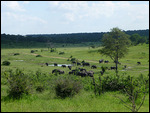
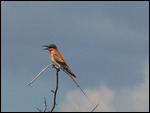
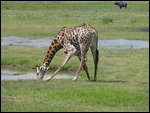
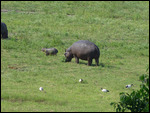

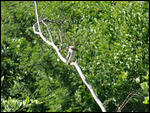
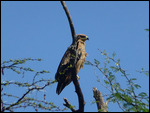
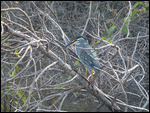
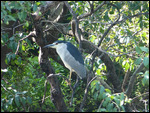
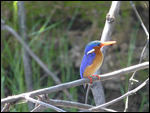
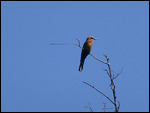
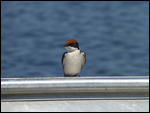
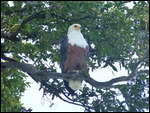
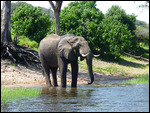
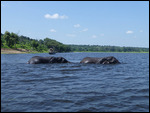
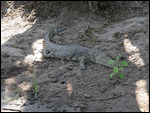
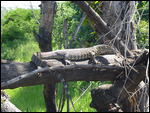
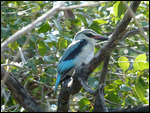
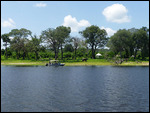
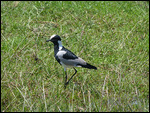
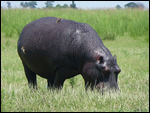
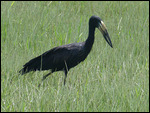
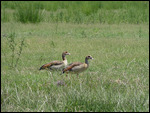
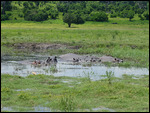
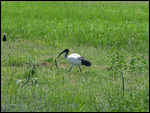
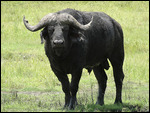
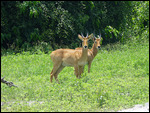
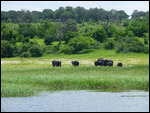
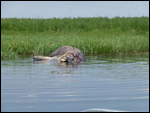
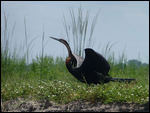
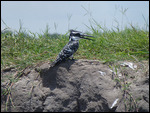
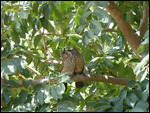
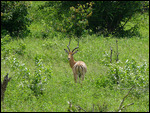
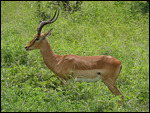
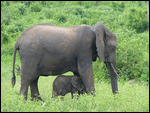
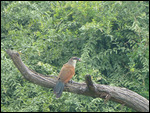
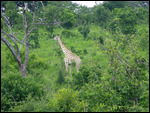
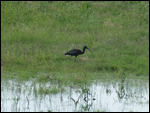
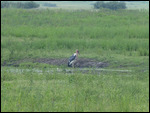
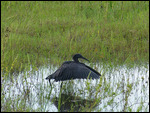
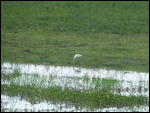
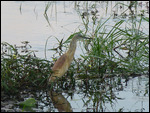
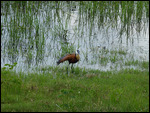
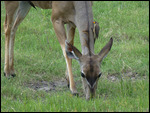
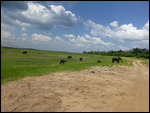
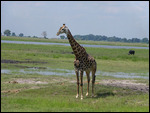
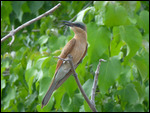
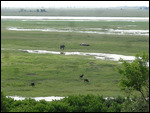
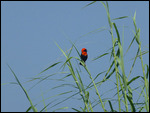
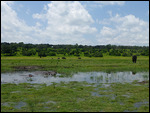
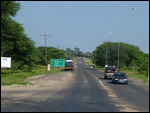

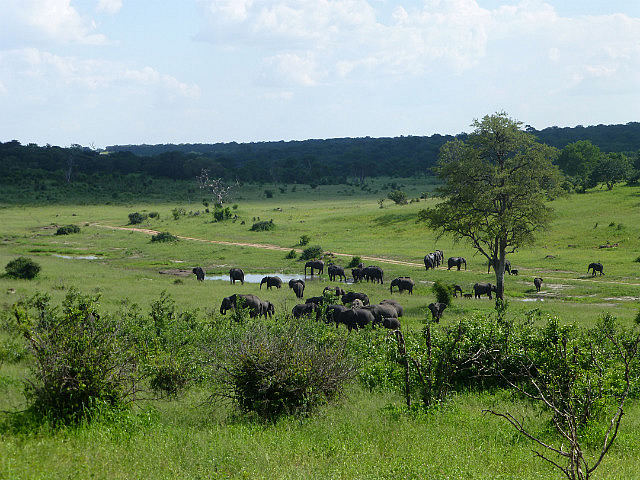
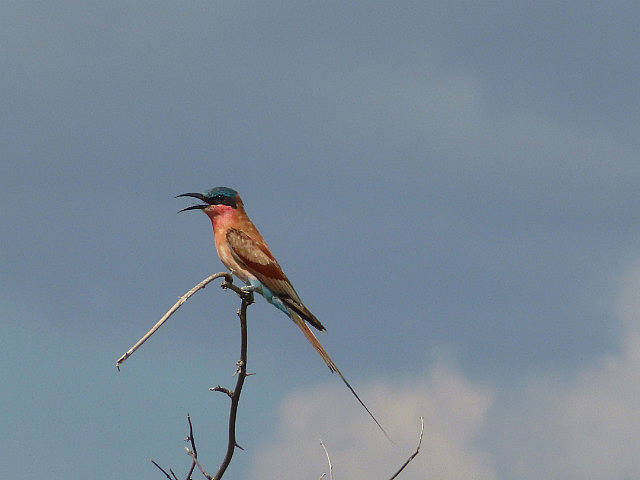
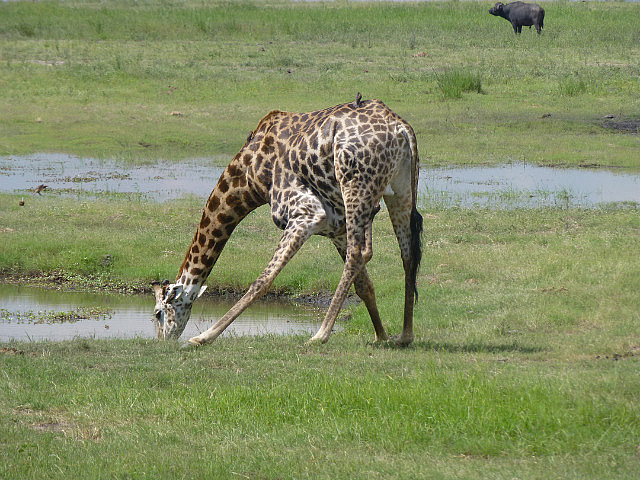
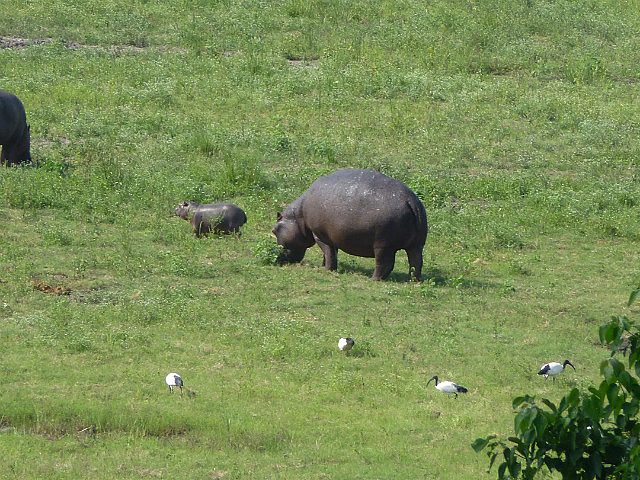
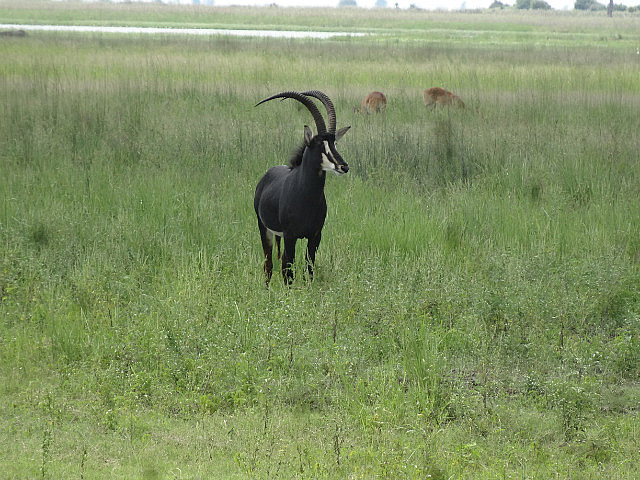

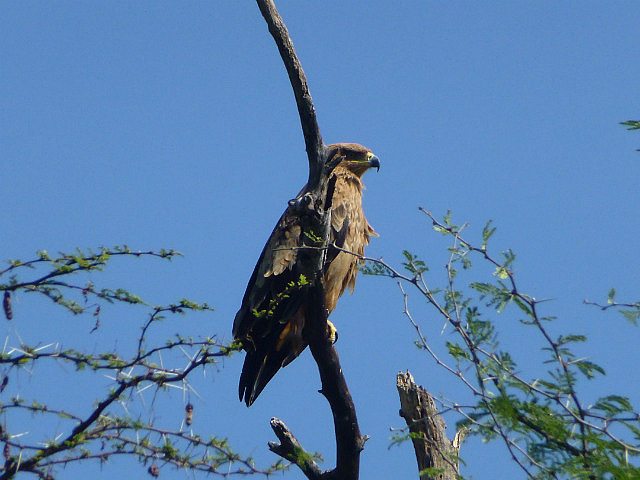
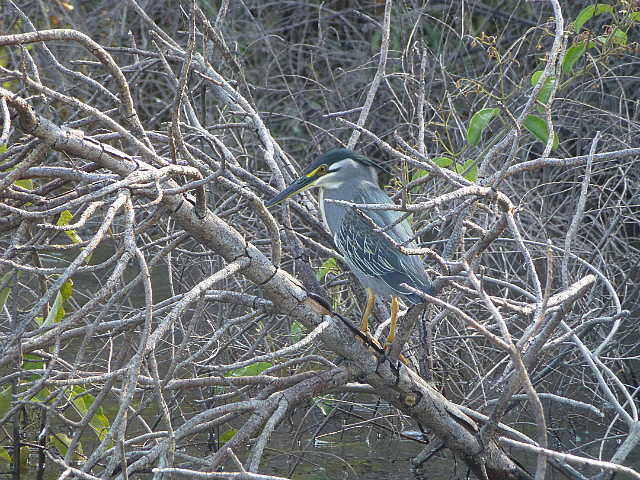
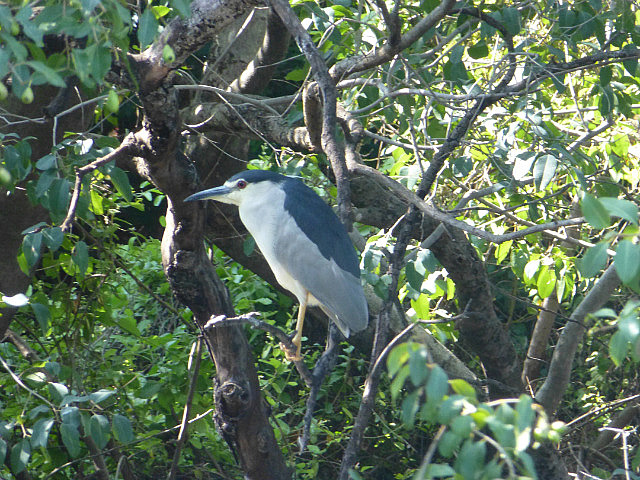
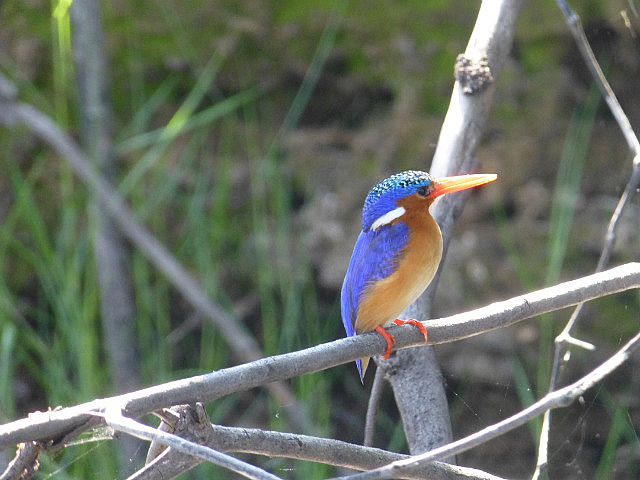
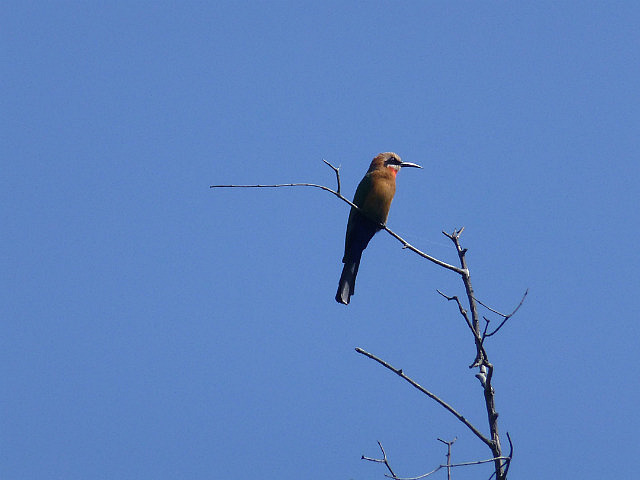
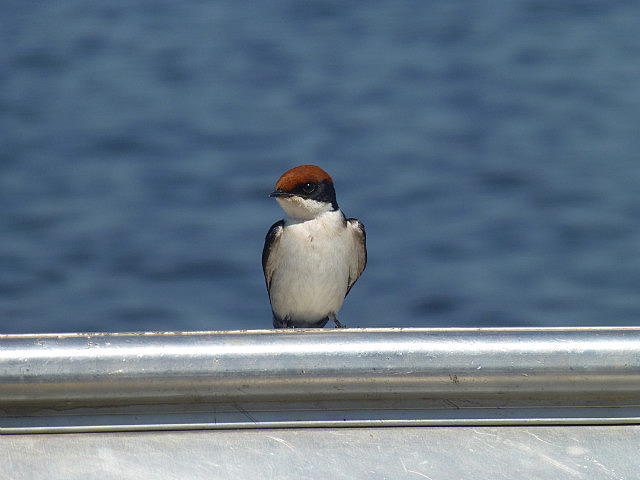
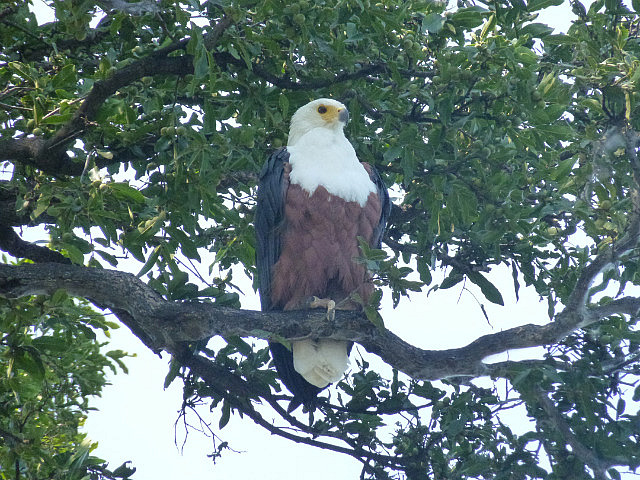
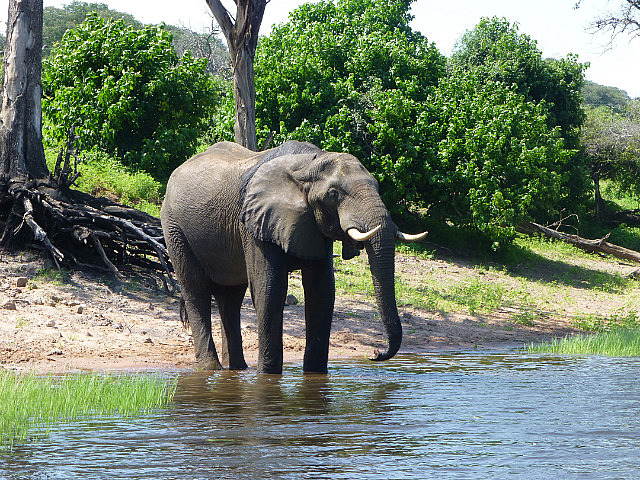
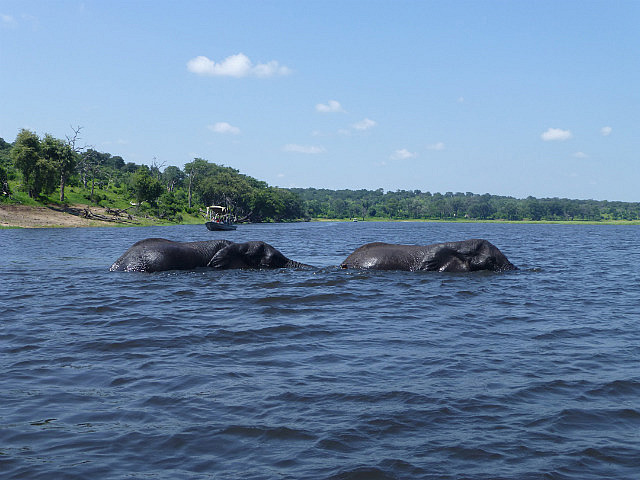
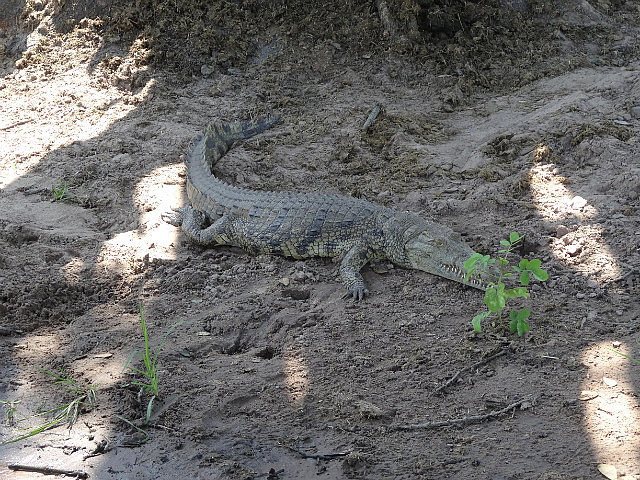
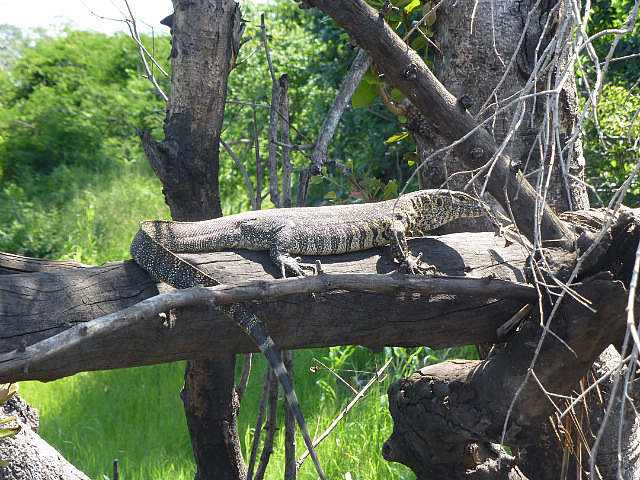
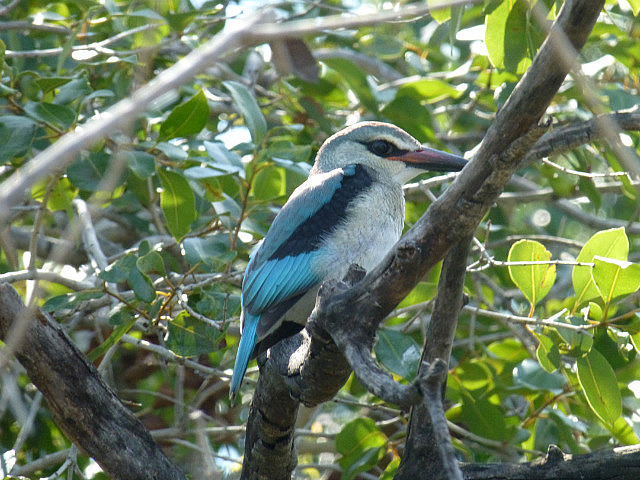
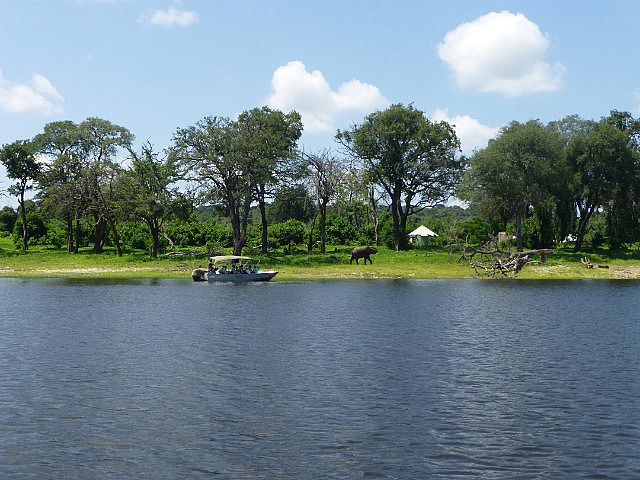
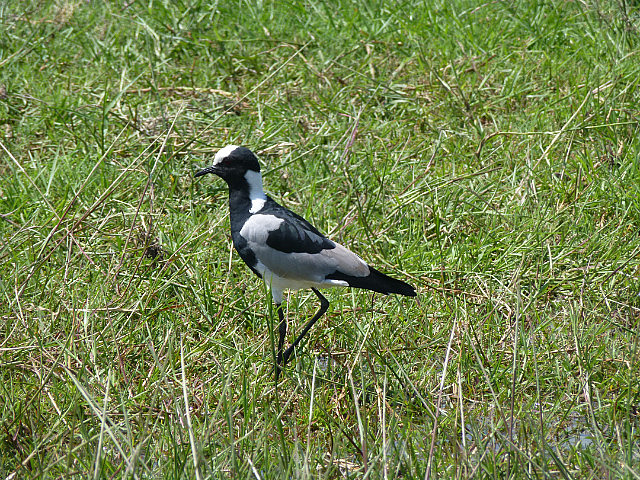

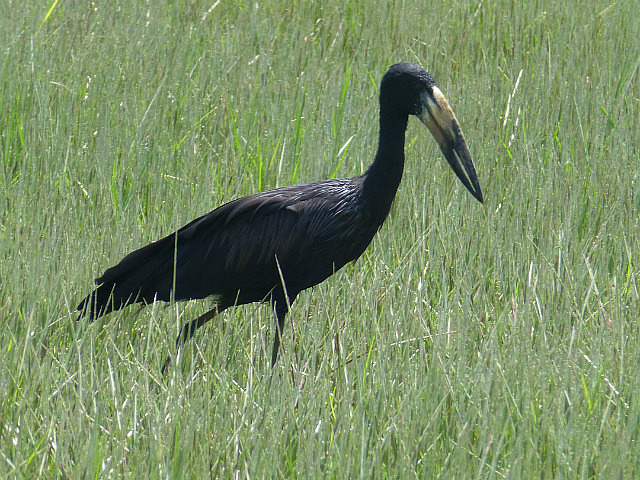
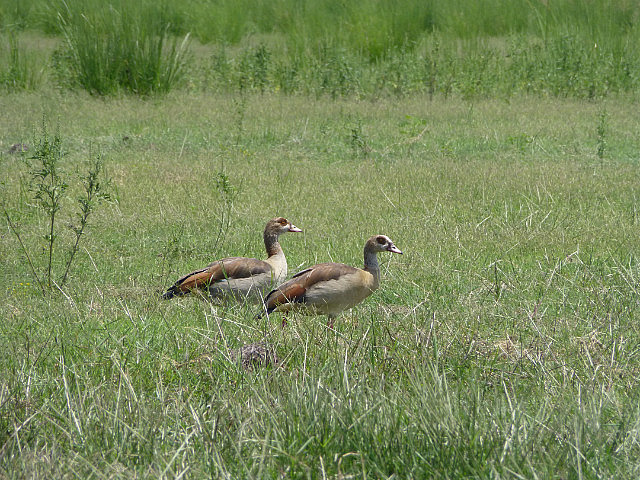
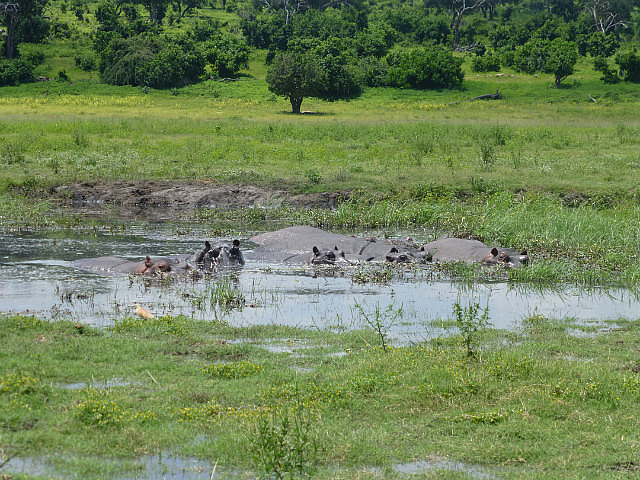
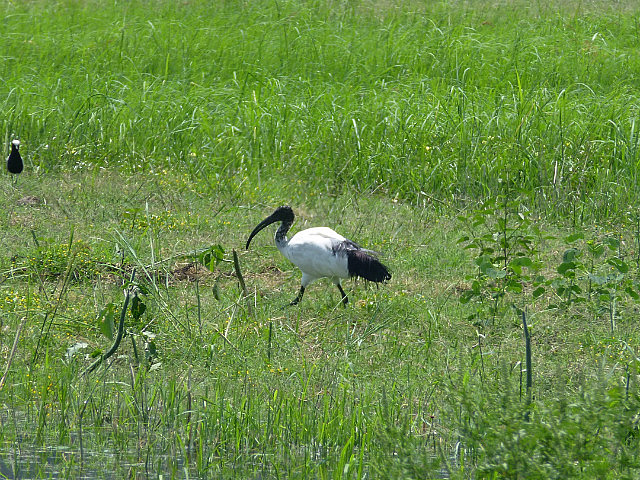
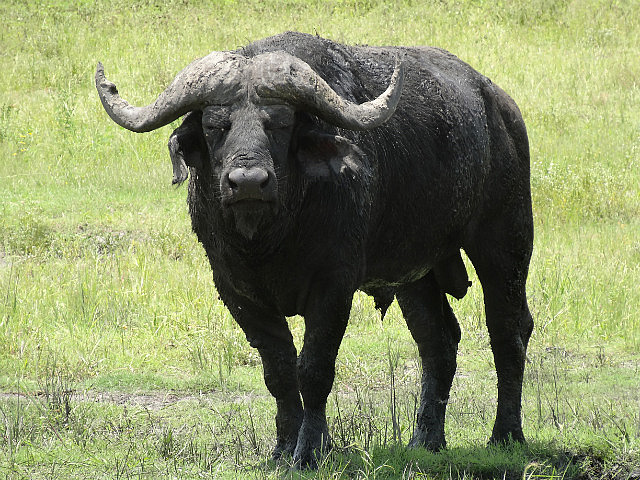
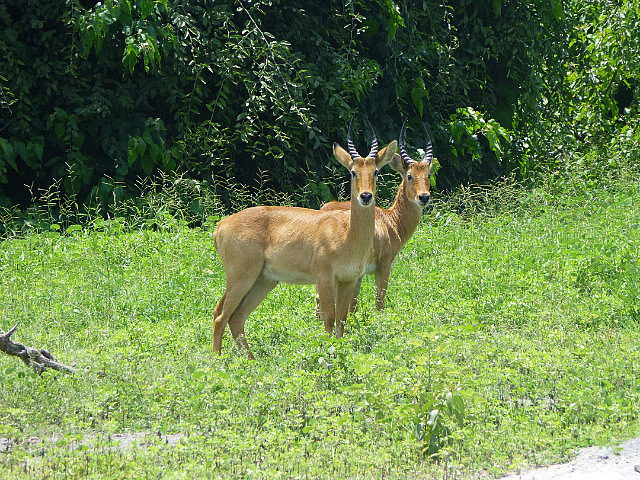
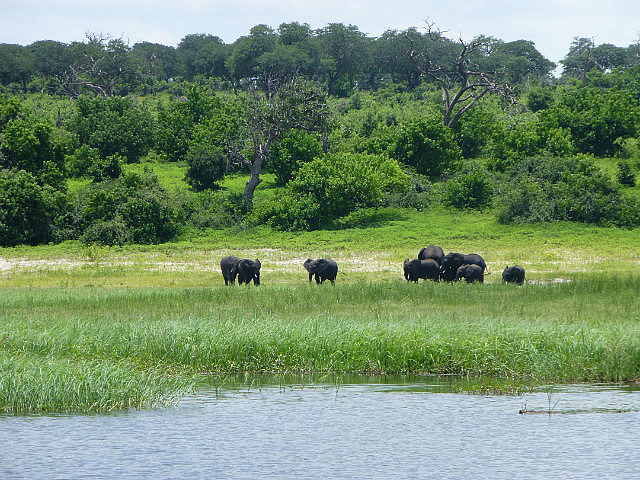
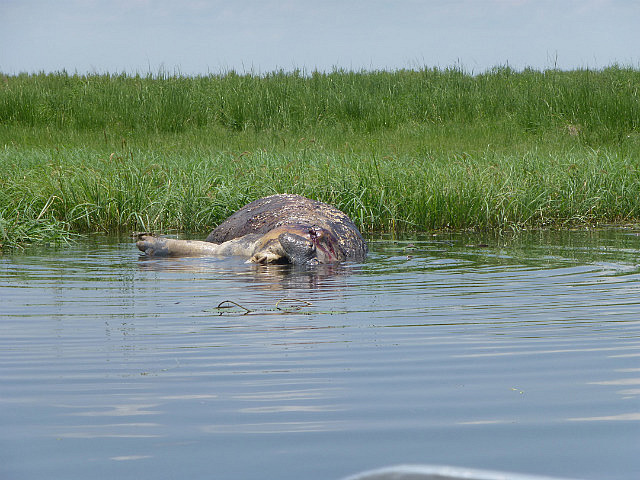
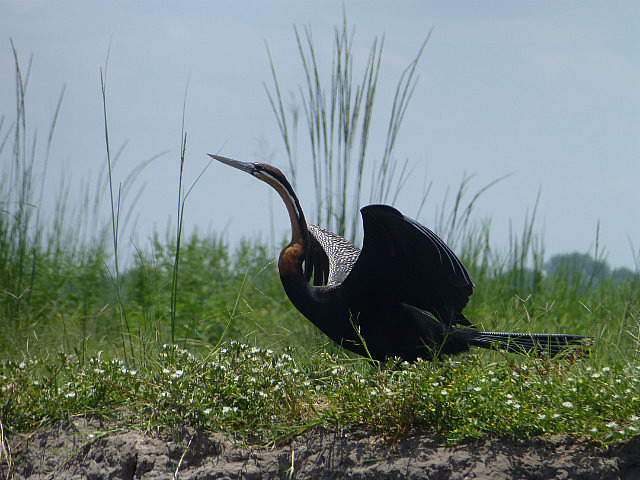
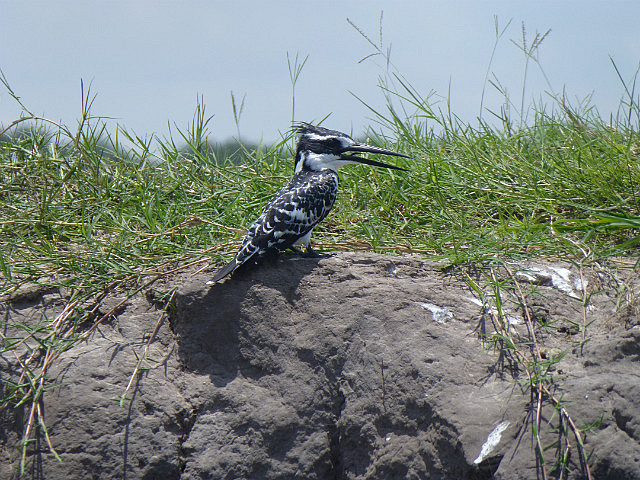
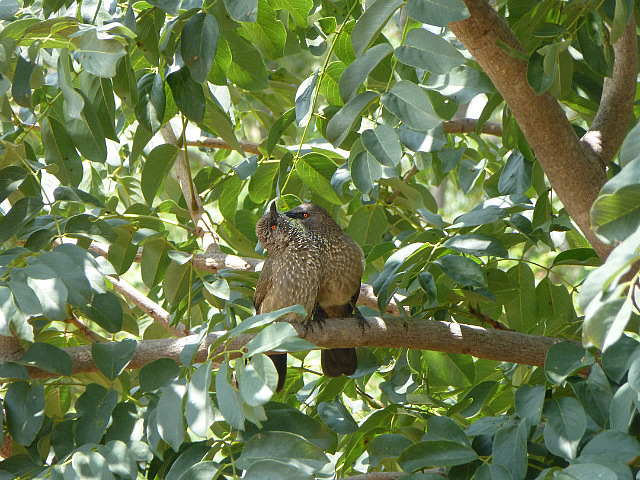
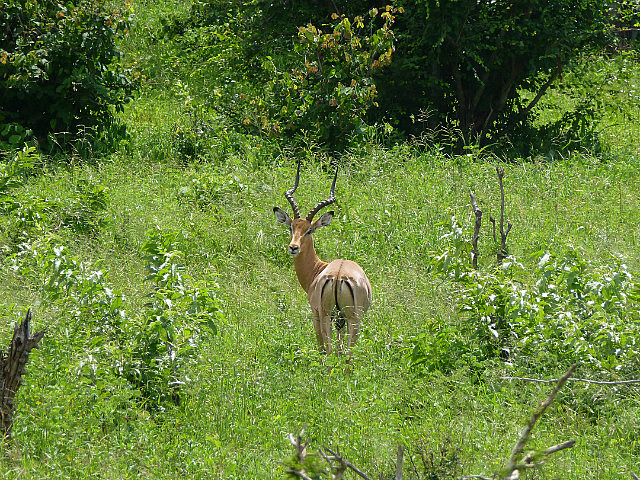
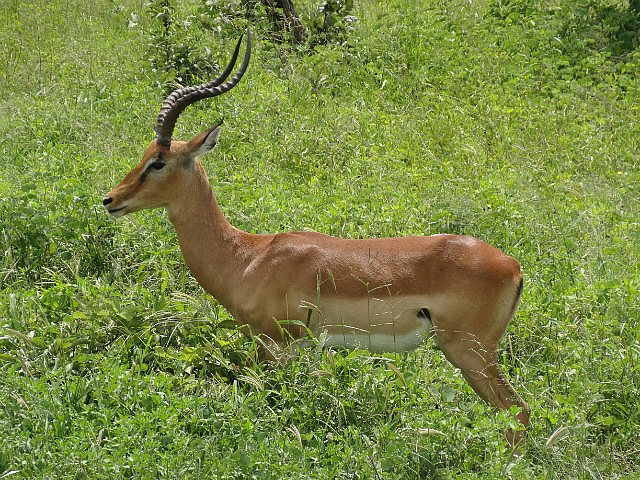
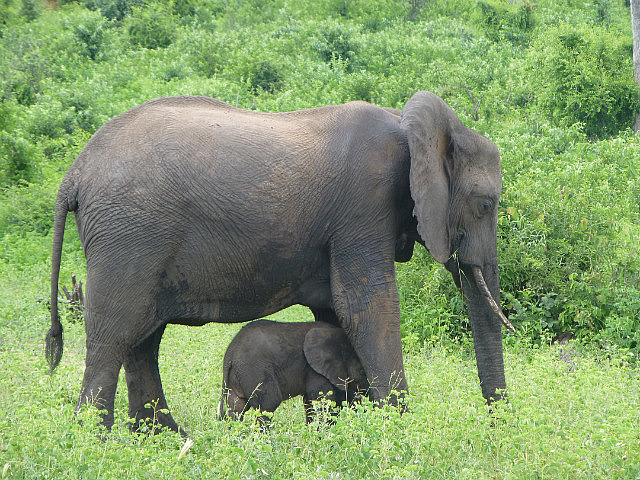
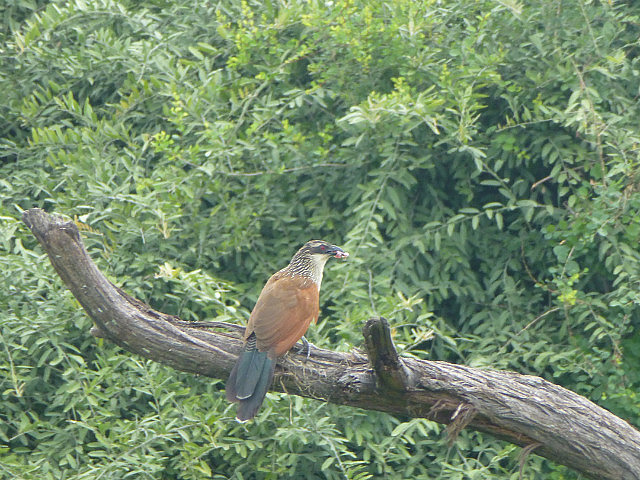
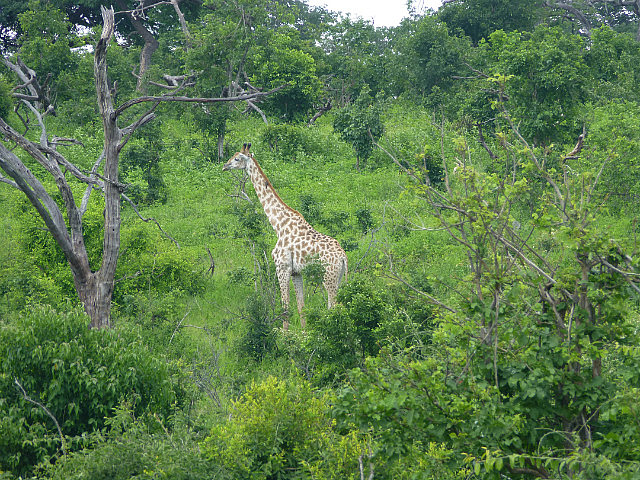
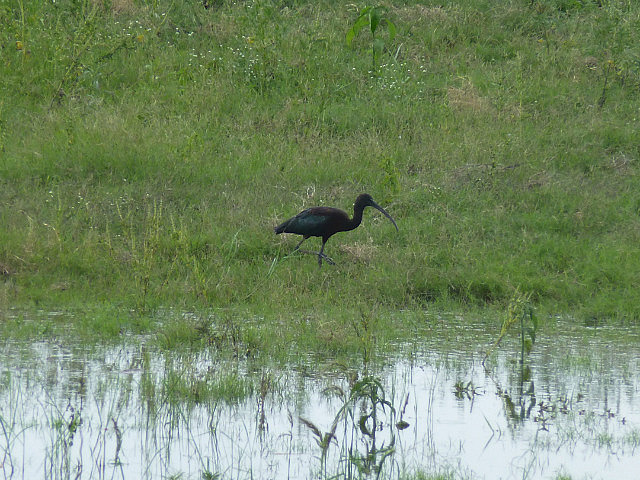
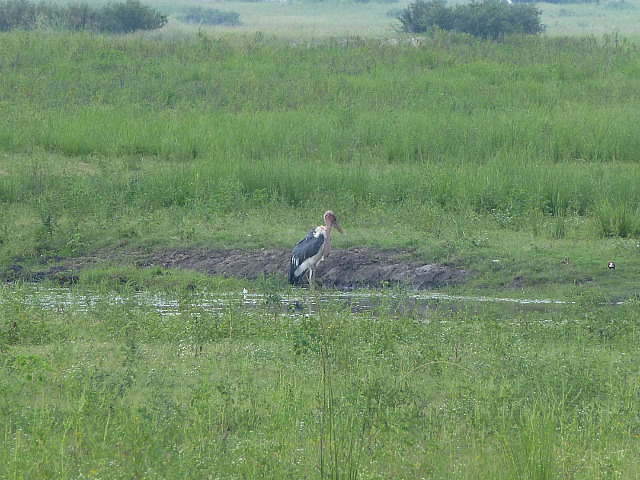
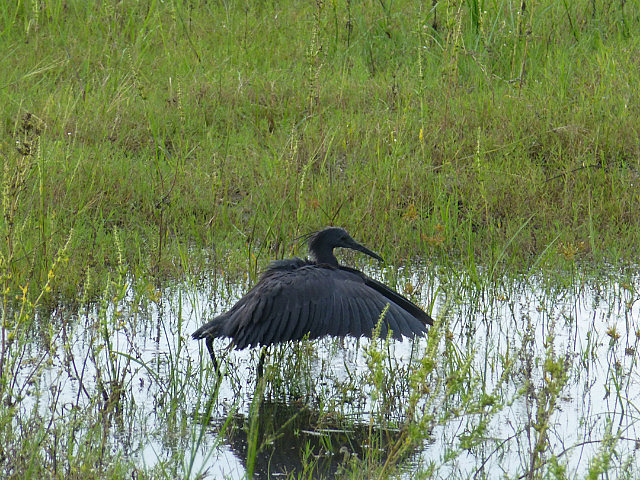
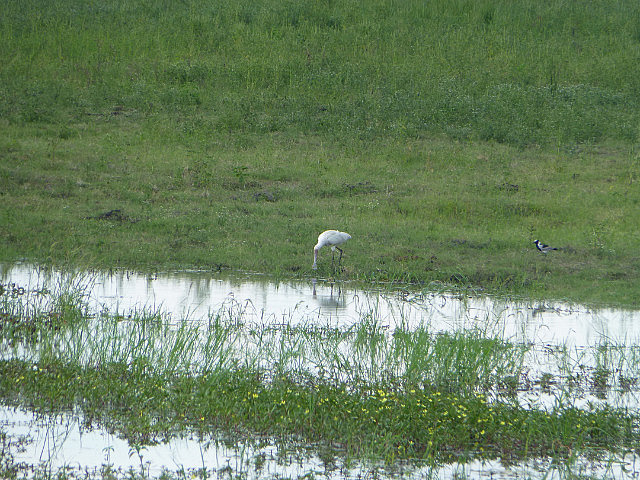
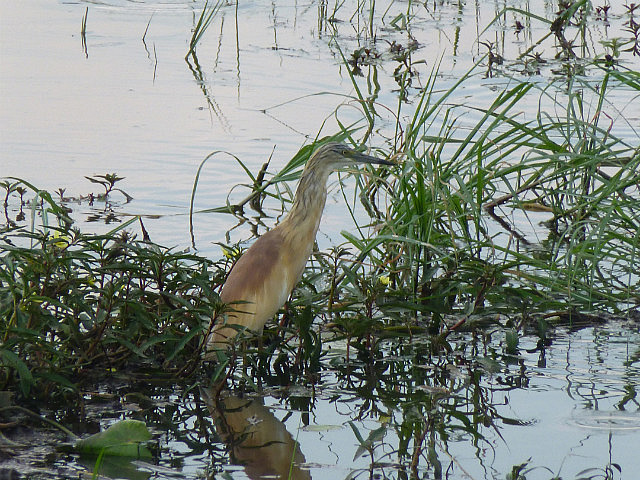
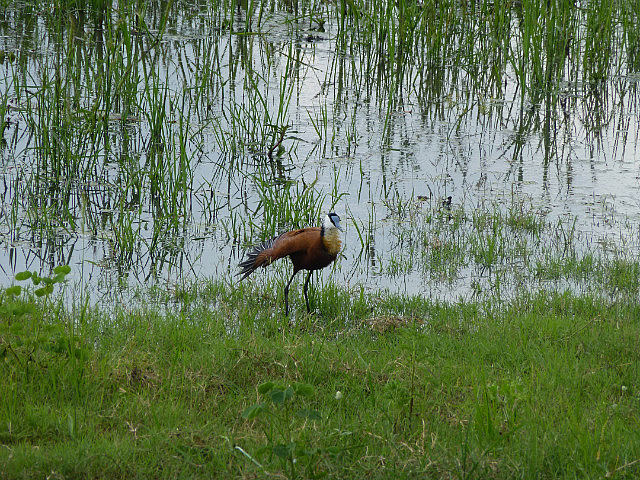
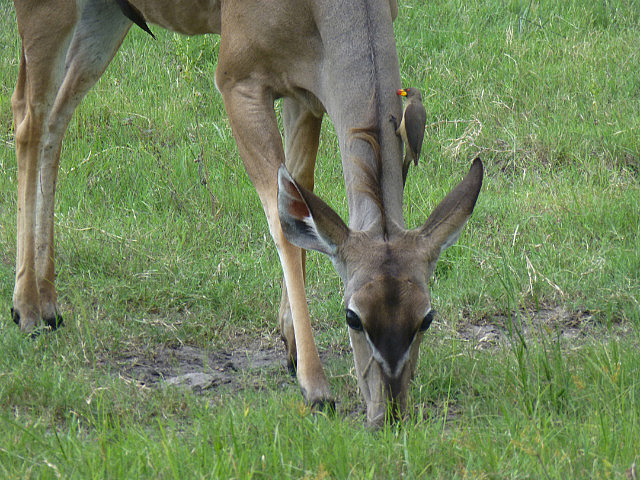
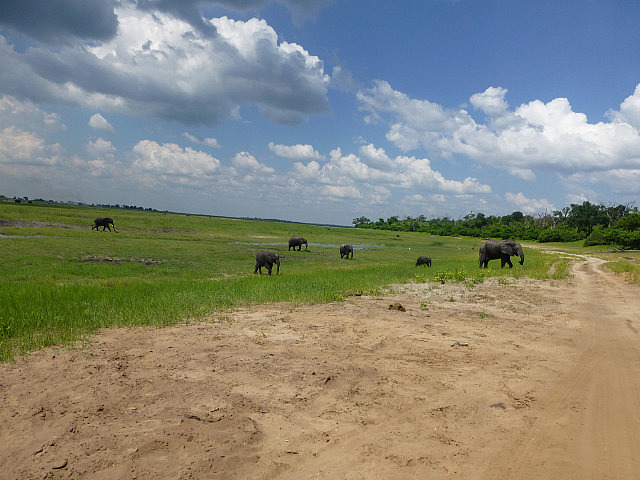
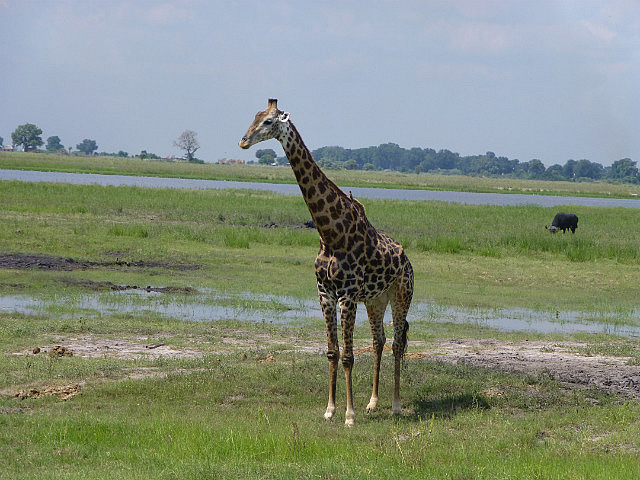
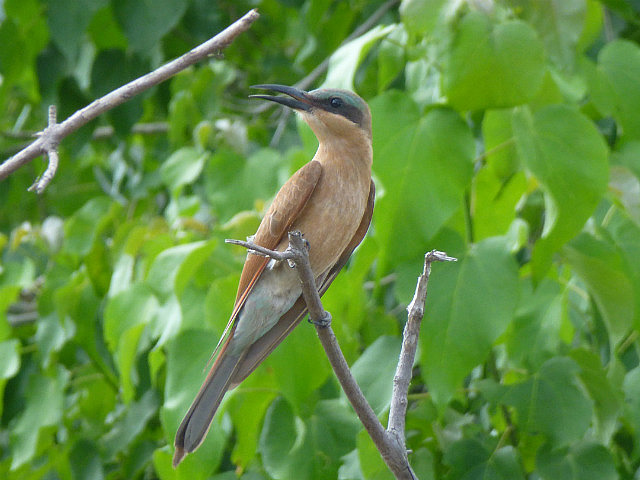
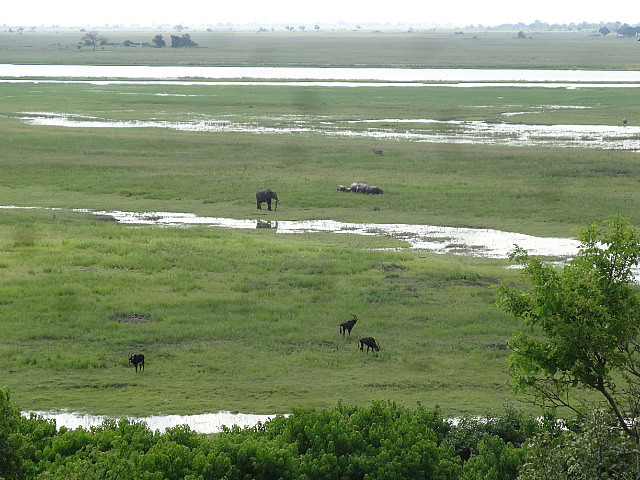
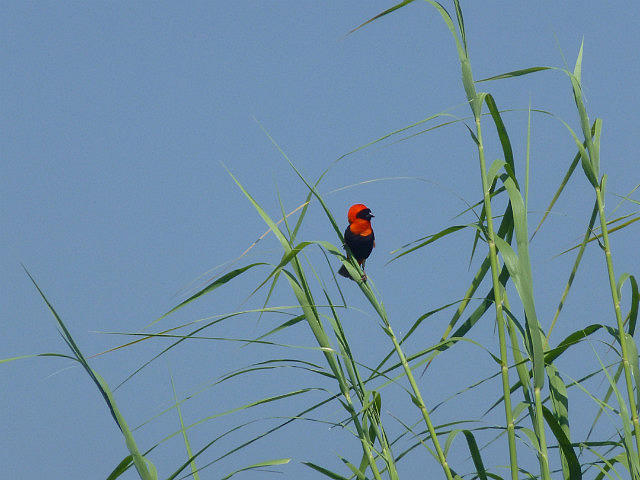
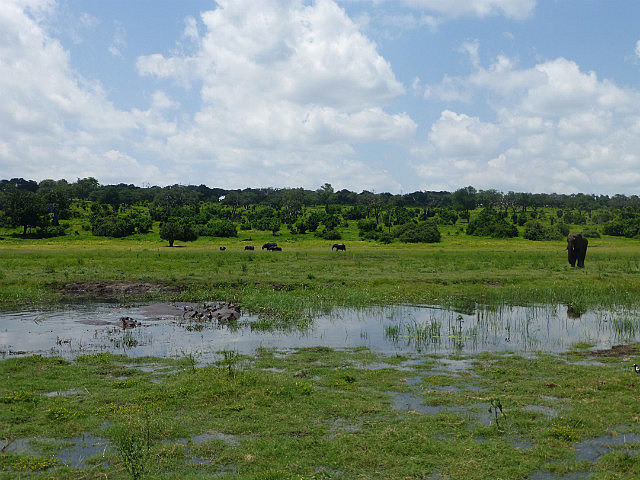
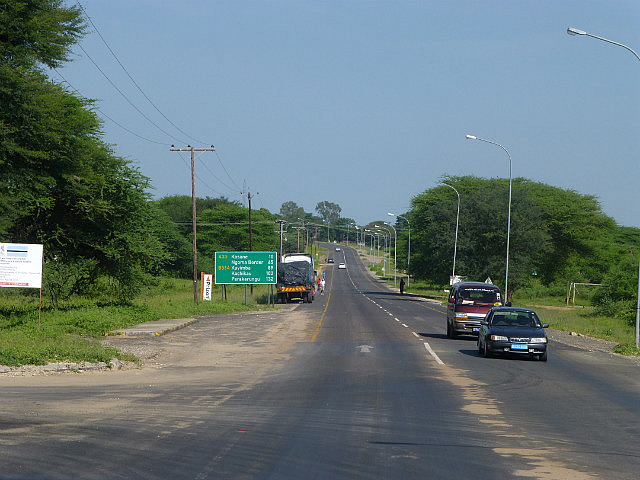
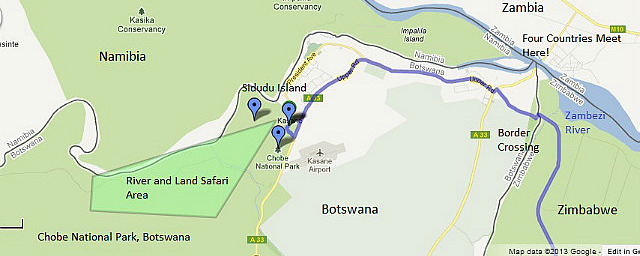
Comments